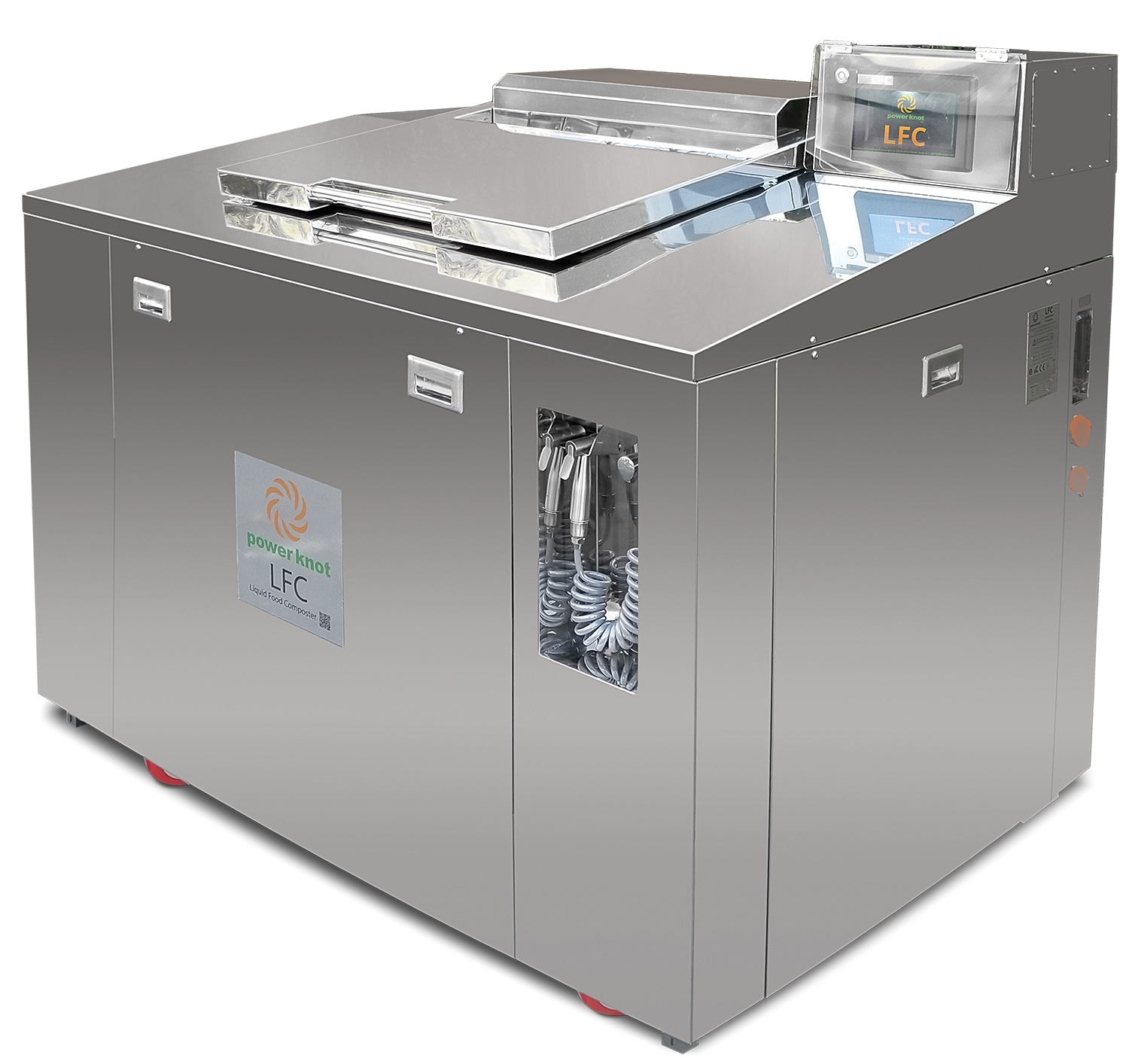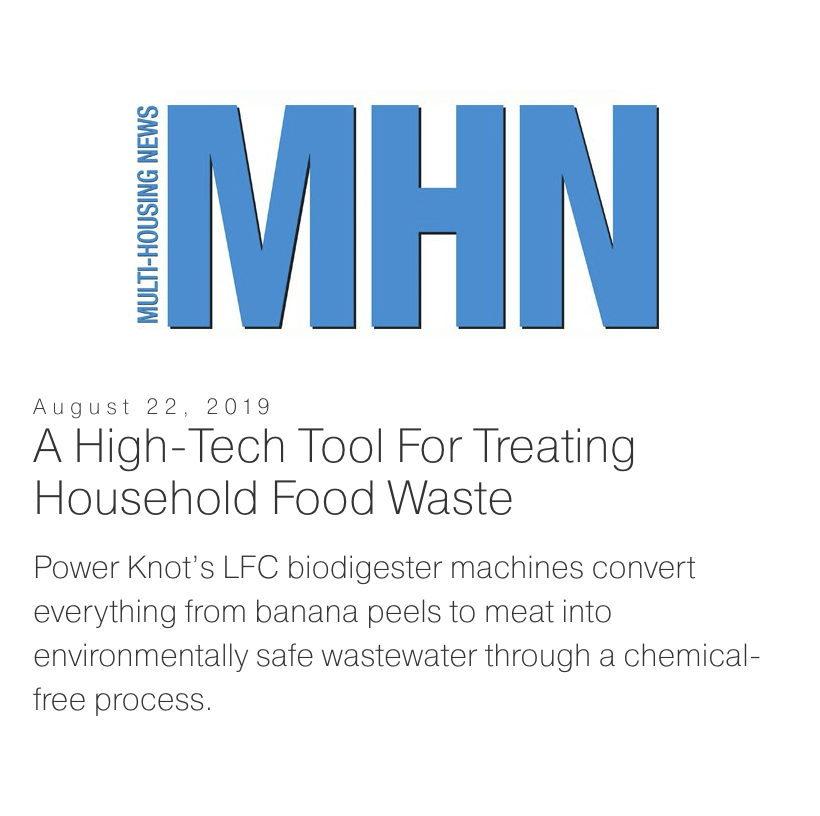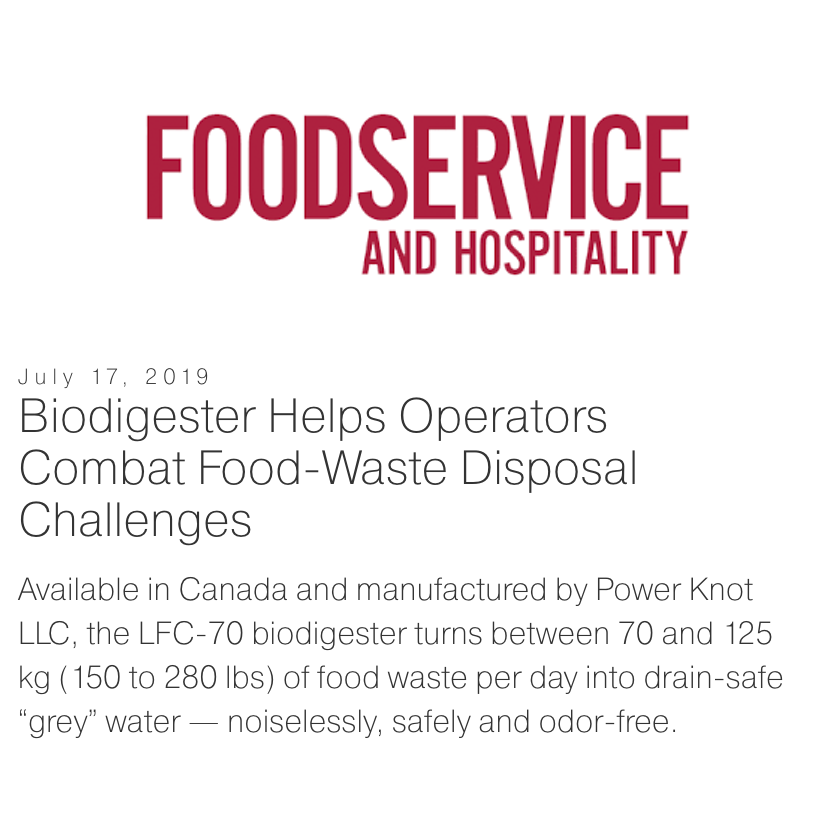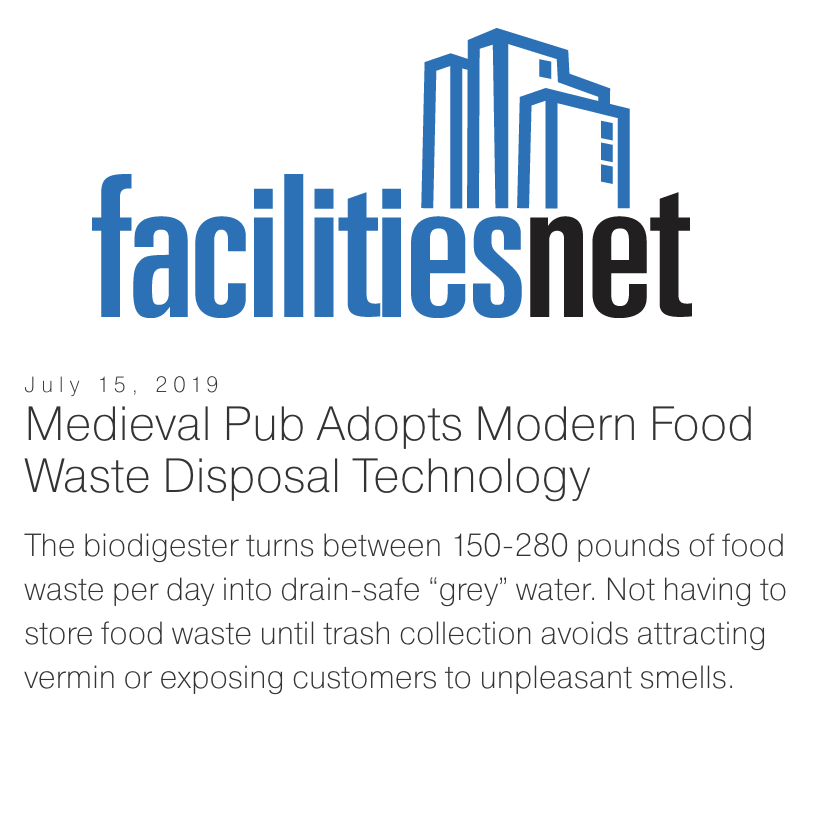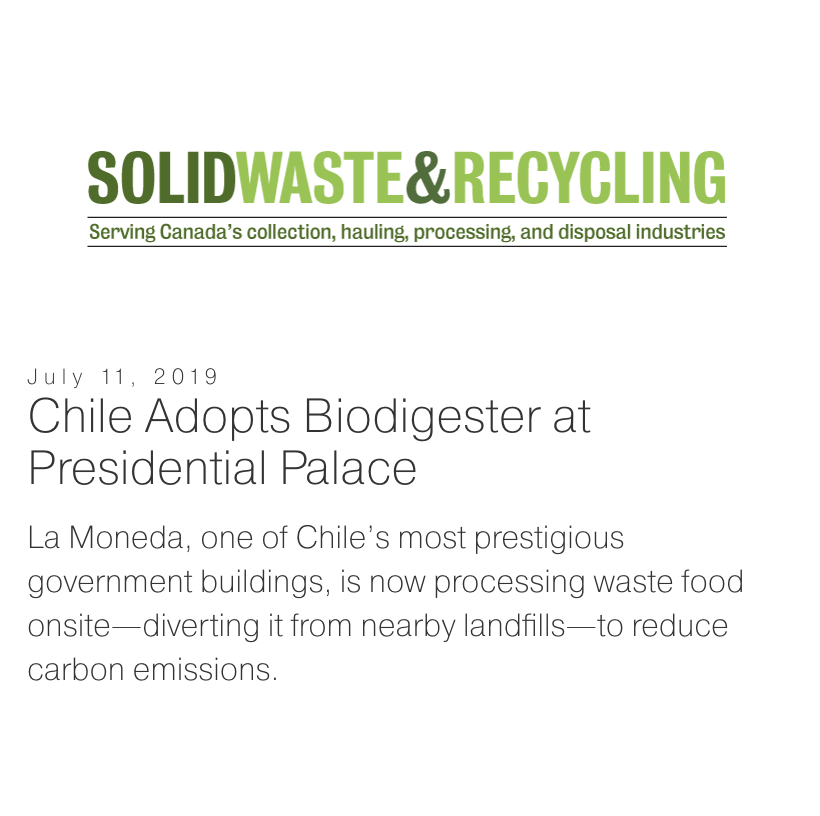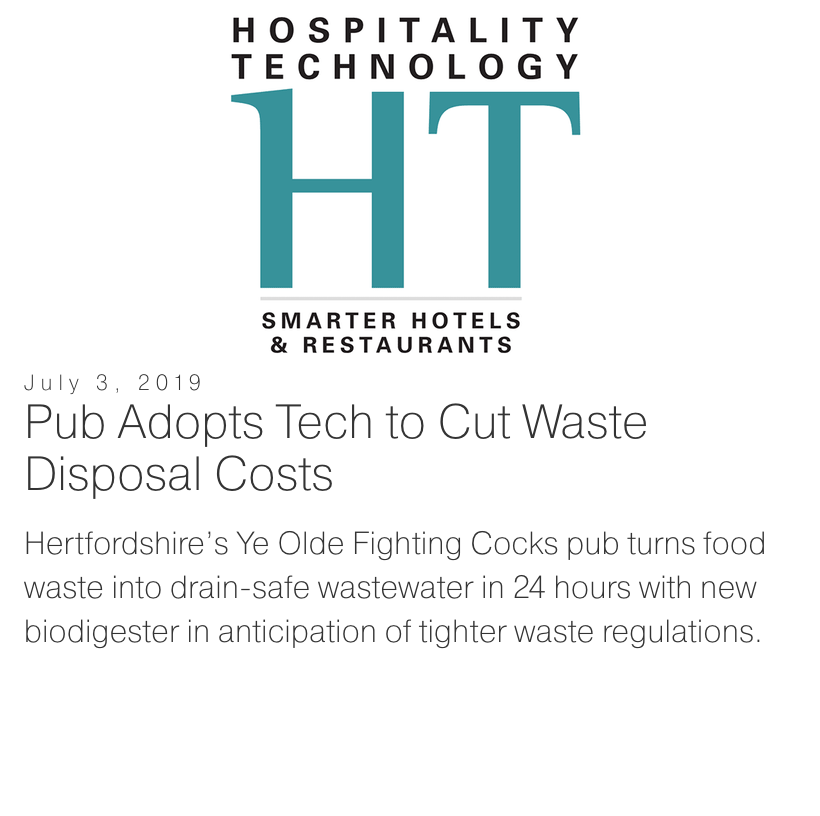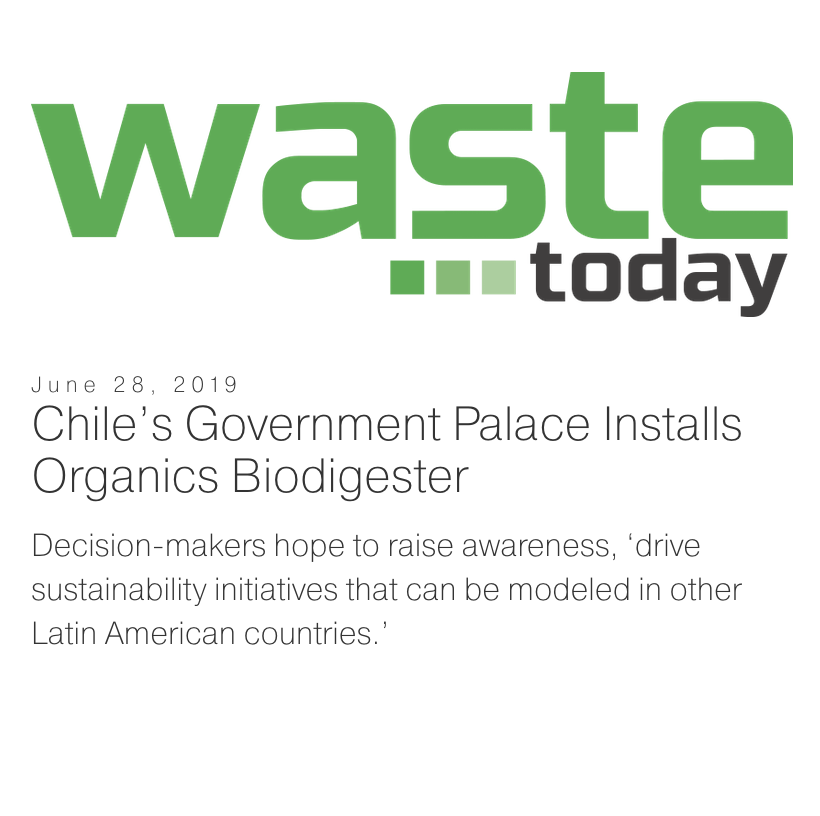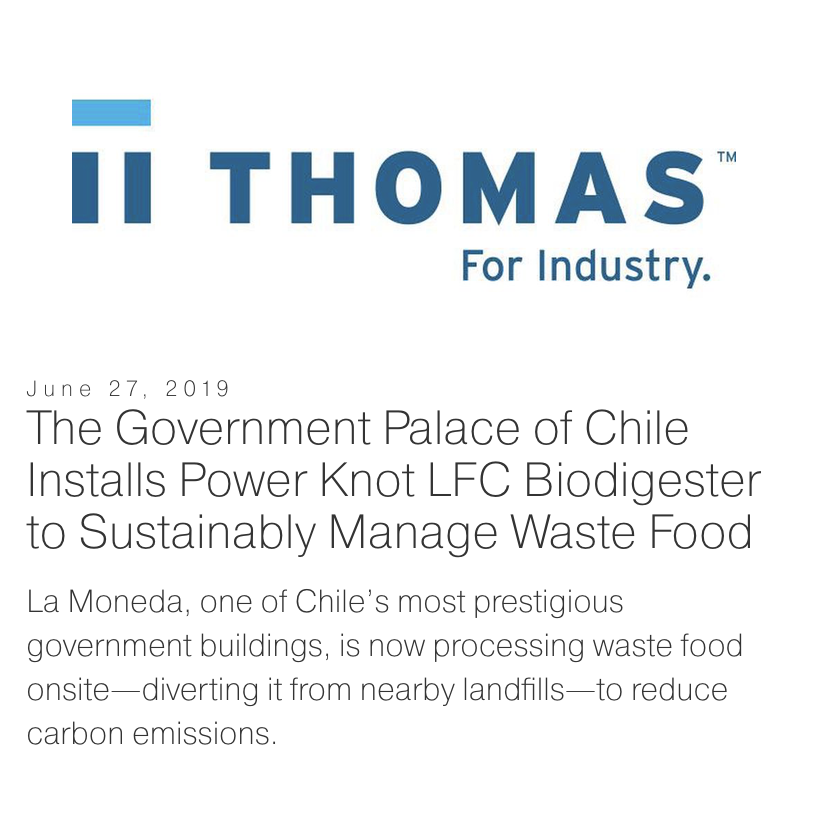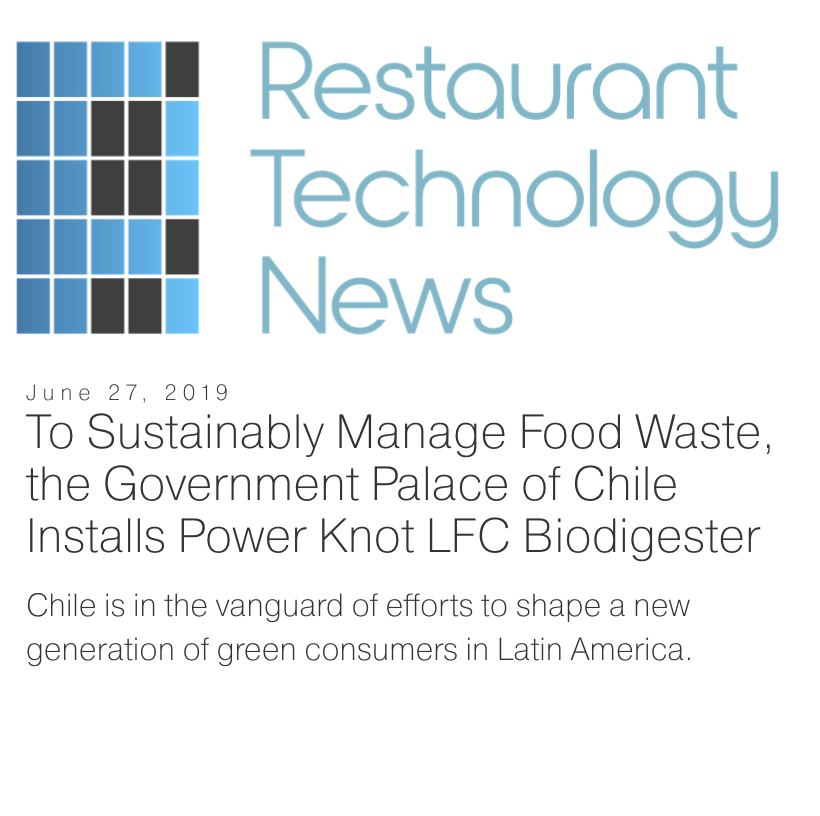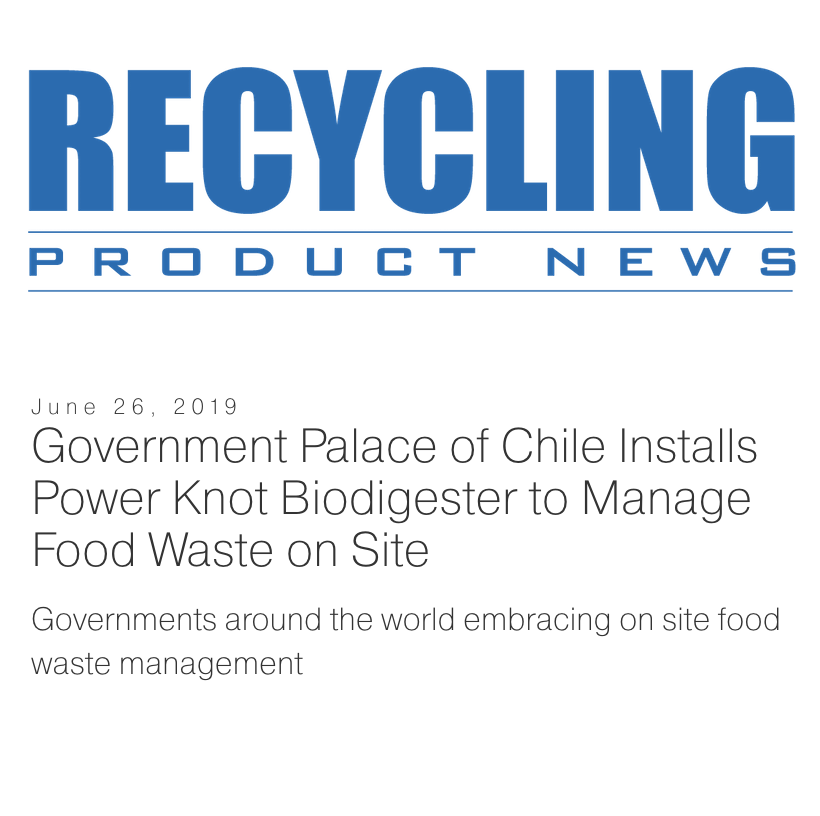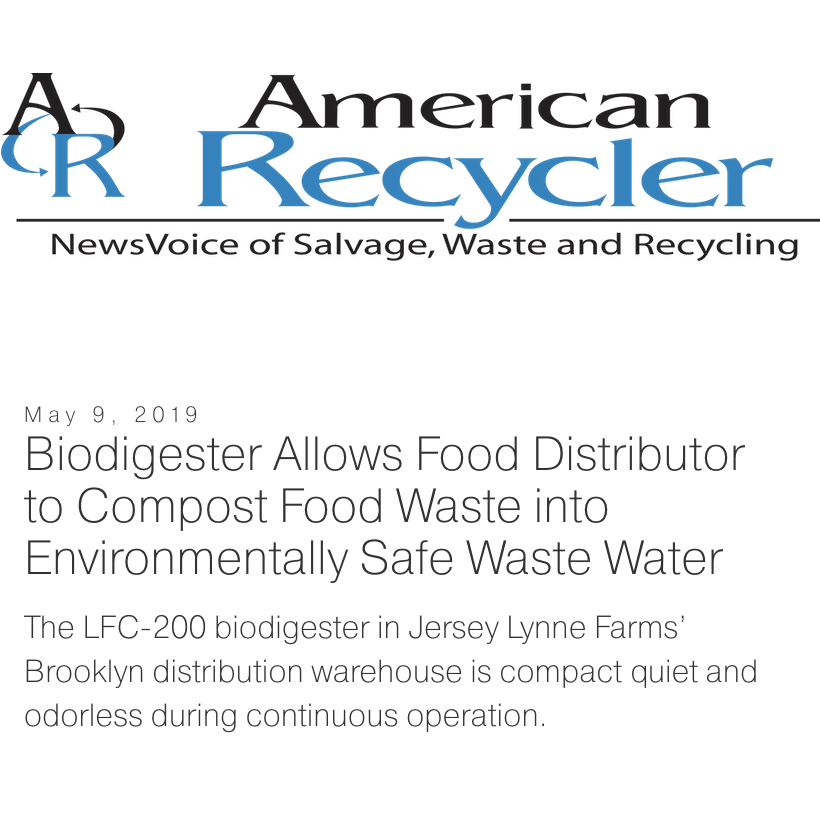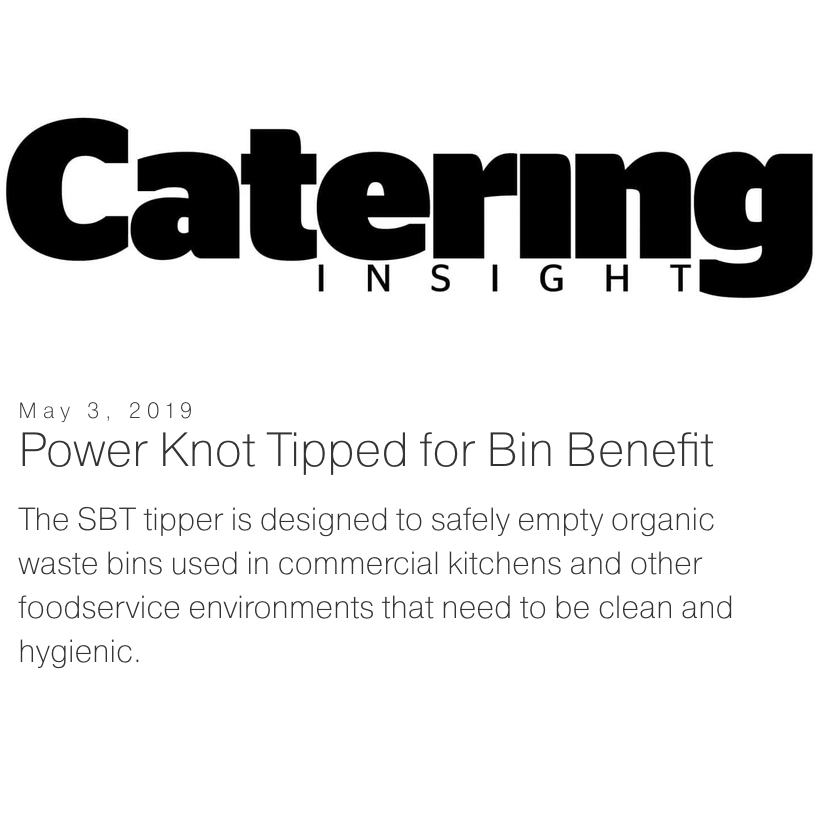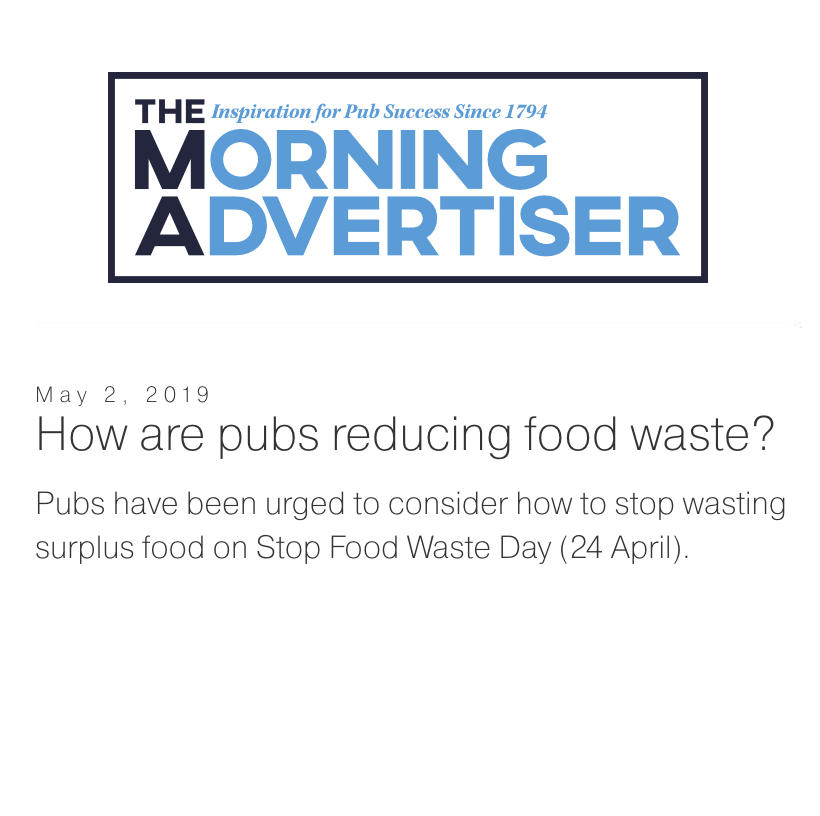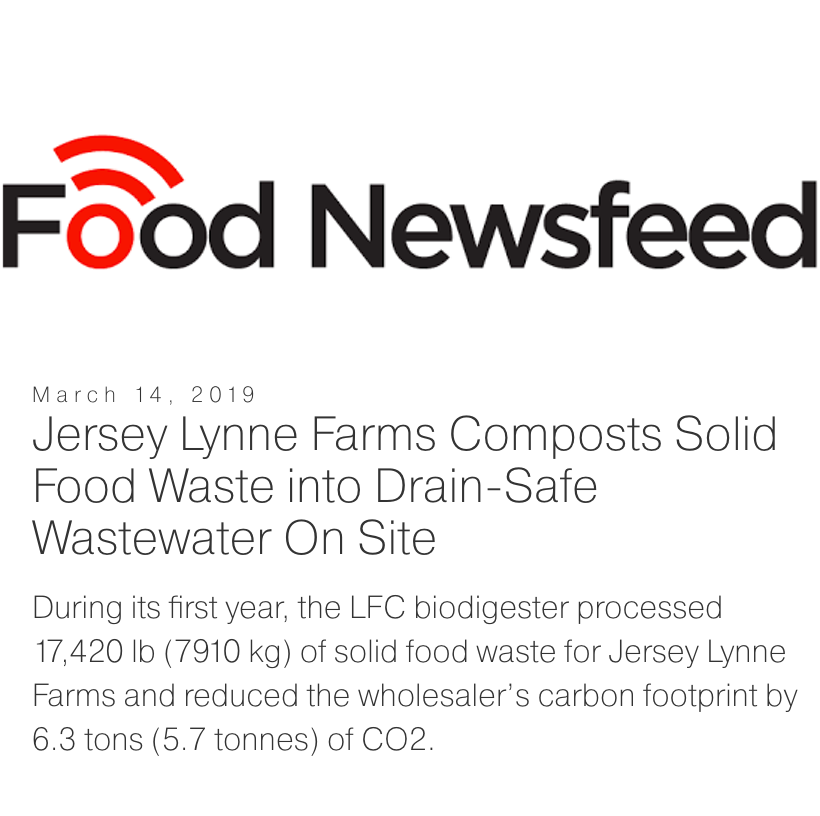Power Knot keeps waste food out of landfills
Where should you send waste food?
Debates about the causes and effects of greenhouse gases are raging nationally. And with good cause: it’s clear that our planet is getting warmer and we need to act quickly if we are to avoid our collision course with global disaster. The foodservice industry can play a major role by changing its approach to the disposal of organic waste. Waste food is a major contributor to the creation of methane, a greenhouse gas with global warming potential that’s 84 times higher than carbon dioxide.
When waste food ends up in a landfill it decomposes in a completely different manner compared to when it decomposes naturally in free air or in a composting facility. The reason is that organic material in a landfill is compressed and compacted beneath tons of non-organic material and, deprived of oxygen and natural pests, decomposes anaerobically. Decomposition in the absence of oxygen takes far longer than aerobic decomposition and, worse, releases biogas — a mix of methane (CH4) and carbon dioxide (CO2).
Methane is what we don’t want in the atmosphere. Methane’s lifetime in the atmosphere is much shorter than carbon dioxide, but CH4 is more efficient at trapping radiation than CO2. Pound for pound, the comparative impact of CH4 is more than 84 times greater than CO2 over a 20-year period. How big a problem is landfill methane? In the USA, landfills are the third-largest source of methane — right behind agriculture. In 2017, methane accounted for about 10.2 percent of all U.S. greenhouse gas emissions from human activities.
Power Knot keeps it in the kitchen
There are two conclusions from all this. One, we need to ensure organic waste is not sent to the landfill. Two, restaurants and commercial kitchens need to be more creative about how they dispose of waste food. That’s where Power Knot comes into the picture, with its LFC® biodigester.
The LFC biodigester is a practical alternative to the traditional disposal of waste food. It uses a series of processes in which micro¬organisms break down biodegradable material in the presence of oxygen. The LFC environment accelerates the digestion of most food products within 24 hours by using a proprietary mixture of microbes and enzymes. The output is grey water that is environmentally safe, and suitable for discharge down the drain or to enrich landscapes. Almost all waste food from an industrial kitchen, including fruits, vegetables, meat, fish, cheese, bread, rice, and noodles can go into the LFC biodigester, and the machine can compost both raw and cooked foods. The process is totally green because it uses no chemicals. And it’s better than sending waste food to a landfill or a composting plant because it eliminates the storage and haulage of smelly and unhygienic waste food.
Working with the founder and president of Power Knot, ZingPR has been creating awareness about the need to recycle waste food in the foodservice, facilities management, and commercial real estate sectors. In just a few months, media coverage in many prominent trade magazines has been secured. And by raising Power Knot’s profile, demand for the LFC biodigester has been growing.
